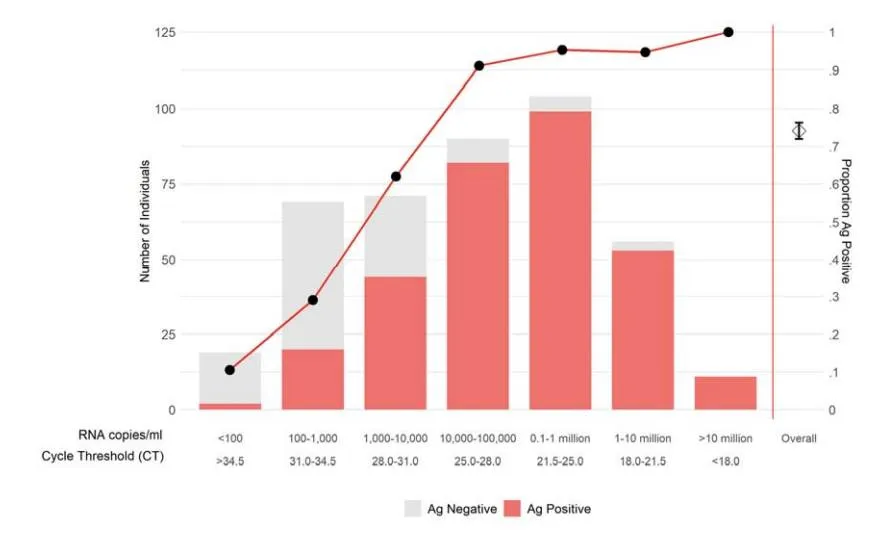
- It looks like booster shots are working really well against Delta infections (not just hospitalizations), with three Pfizer shots granting 95% protection against infection in field studies in Israel. This level of protection is as good as the standard two-shot course was against the original COVID. I got a third Moderna shot in August when there were soon-to-expire doses piling up unused and appointments were wide open (and thus we felt ethically OK that we weren't taking the shot away from someone who needed it more). There's no population-scale study on what happens if you get three Moderna shots, but it likely conveys even better protection than three Pfizer shots.
- Rapid antigen tests are much better than I thought for the usecase of screening attendees at an event that lasts a few hours. I was down on them earlier this year because their sensitivity at detecting infection is low, but it turns out their sensitivity at detecting whether someone is both infected and contagious is much higher. For very high viral loads, sensitivity is close to 100% and issues like not performing the test properly start to become the main reason these infections aren't detected. Michael Mina (the epidemiology professor, not the chef) claims that rapid tests are ~97% sensitive at detecting viral loads that are high enough to transmit, but I looked at the papers he linked to and I'm unsure how he comes to that conclusion. However, I would roughly guess it's unlikely that the sensitivity is lower than maybe 80% at detecting people who are infected and contagious based on the graph of viral load I found in one of the papers he linked to. To all of you who organized events earlier this year where you rapid-tested everyone at the start and then proceeded without further precautions, you were actually doing the right thing and I apologize for saying these tests were only a 2x risk reduction.
Paper on sensitivity vs viral load (from Jan 2021, so I could have found this months ago but didn't!):
https://www.medrxiv.org/content/10.1101/2021.01.13.21249563v2
My updates at this point are:
With a booster, my COVID exposure risk for any activity is maybe 1/3 of what Microcovid says for a fully vaccinated person. This lets me do a good bit more than I'm doing right now.
Everyone who's fully vaccinated should get a booster when it's available as opposed to waiting for some Delta-specific booster in a few months.
I'll feel very safe at indoor events where they antigen-test everybody on arrival (unless the event lasts several days, in which case people should get an antigen test every day.
At this point, my main concern with COVID is long COVID as opposed to acute infection, as I'm young enough that an acute infection as a vaccinated person would be relatively mild.
